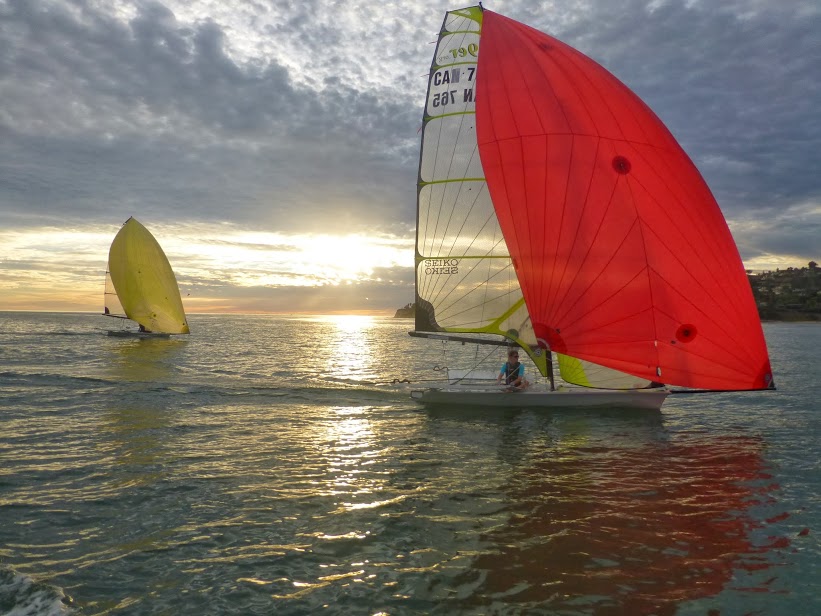In March of 2011, just as Dane was beginning to get serious about training as a skipper in the 29er, I received this e mail from papa Wilson:
Quinn really wants to sail on Sunday if that’s still a possibility… Whatever is best for Newt and Dane. Quinn’s time will come.
cw
Just over 3 years later, Quinn returned home from the ISAF Youth World Championships in Tavira, Portugal last month with his crew Riley Gibbs, bouquets in hand, and silver medals hanging around their necks.
With two prior ISAF Youth Worlds experiences full of emotional roller coasters, I’m sure that the silver medal this time has a tremendous amount of meaning to Quinn, and even to me it represents so much. Over the last three and a half years, it represents thousands of hours of training on the water. It validates our training program, our theories on sail setup, and our methodical approach to strategy and tactics. It represents a handful of draining, and highly emotional hours waiting nervously for protests to be decided. It encompasses memories of being stuck in the freezing cold, memories of being surrounded by thunderstorms, and memories of scrambling to repair broken parts. At this point, I have lived through moments of blood, sweat and tears (literally) with many of the people closely involved, and it is each of these moments which built character, revealed character, and ultimately made this medal so meaningful.
I’ll never forget sailing with Quinn for the first time on that Sunday in 2011 in a strange easterly breeze, tacking up the coast towards Summerland in a thick bank of fog. After about an hour of beating upwind, Quinn had a big grin on his face, as he marveled at how fast we had gotten down the coast, and how he had never been so far from the harbor before. As Dane and I prepare for our debut on the international 49er stage, Quinn will be pushing us hard from the coach boat to be the best we can be, just as he pushed Dane and Newt to prepare for their international 29er debut, and gold fleet finish in 2011. In the next several months, Quinn will be launching his next big endeavor and while I won’t give it away, I think it’s safe to say that, I think that he will marvel once again at how far from home he has pushed his boat and his comfort level.
Congratulations to Quinn and Riley for their amazing performance! We are very proud of you and we are so grateful to be a part of such an amazing team of people!


